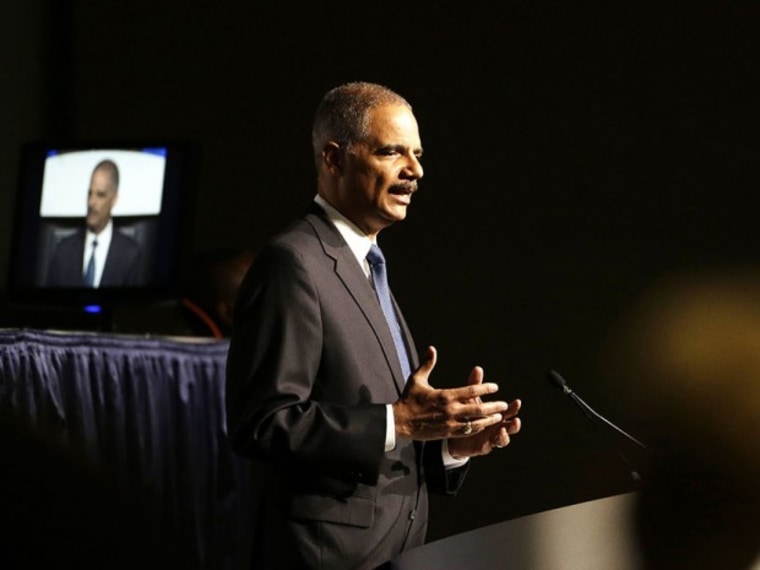We have a new federal policy toward non-violent drug offenders to lock them up less often and for less time as well as perhaps a new direction on stop-and-frisk, two significant changes to tactics in the war on drugs which admit, as Attorney General Holder said, "we cannot simply prosecute or incarcerate our way to becoming safer." This because "our criminal justice system may exacerbate crime rather than alleviate it."
The reason for that, the reason why tough on crime is not smart on crime, why it's good politics and bad crime policy, is that prison is better at creating criminals than it is at deterring them. Prison is criminogenic.
No one is saying open the doors and let all prisoners out but when we put non-violent offenders, especially low-level drug dealers or users in prison, we are ignoring the fact that putting people in prison will probably make them worse. You may say "hey I don't commit crime because I'm scared of going to jail," and I feel the same way. But most criminologists agree that people with job opportunities tend to not commit violent crime and those who go to prison are far more likely to break the law again, which is why 40% of former federal prisoners and 60% of state prisoners are re-arrested or sent back to prison within three years.
These massive recidivism rates suggest prison is failing and helping to create crime, to criminalize people. How? There are myriad ways. Spending time in prison diminishes legitimate employment opportunities: when you get out it's hard to find legitimate work. It diminishes your self worth, especially for those who are brutalized and/or raped. It strengthens your bonds with deviant people and weakens your bonds with the law abiding community. It stigmatizes people as deviant and leads to them internalizing that as their identity.
And there's this: as the prison population has exploded over the past three decades and millions have spent a portion of their lives in prison the prison experience has become demystified.
Millions know intimately what prison is like and they know it's survivable. The fear of the unknown is gone so people who are struggling to get a job and have criminals in their social networks are aware that they can deal with a bid. And perhaps have to do a bid in order to be respected by some. And the impact extends beyond those who are incarcerated.
When we pull men away from their families for non violent choices they make about their health, i.e. for doing drugs, that makes it harder for their family to survive economically and increases the potential for his children to become criminals. And if inmates return to their communities, demystify the prison experience and earn money through the illegal economy, that helps draw others into criminal behavior.
Mass incarceration has done more harm than good. Prison itself is part of the problem and finding alternatives to prison is critical because being the world leader in incarcerating your citizens is an embarrassment, it's economically unsustainable, and it's not helping us fight crime.
We've taken two strong steps toward turning away from tough on crime to smart on crime. Two steps taken and hopefully more to come.
